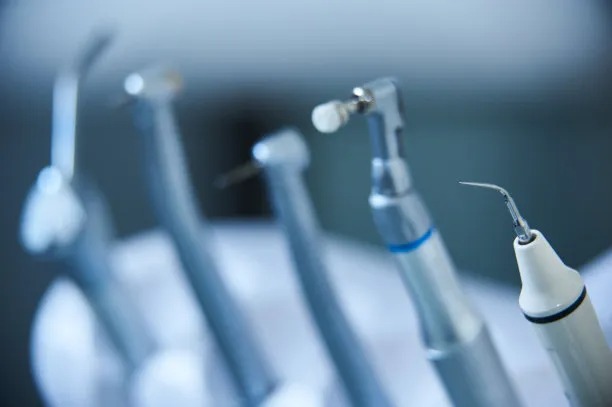Summary: Extracting a tooth can be a daunting experience for many, but understanding what to expect and how to care for your oral health afterwards can ease anxiety. In this essential guide, we will cover four key aspects: the reasons for tooth extraction, what happens during the extraction procedure, post-extraction care tips, and long-term oral care strategies to maintain a healthy smile. By being informed about each step of the process, patients can face tooth extractions with confidence and ensure a speedy recovery while protecting their dental health.
1. Common Reasons for Tooth Extraction

Understanding why tooth extraction may be necessary is crucial for patients. Common reasons include severe tooth decay, which can jeopardize the integrity of surrounding teeth and gums. In cases where a tooth is beyond repair, extraction may be the only option to prevent infection and protect overall oral health.
Another frequent reason for tooth extraction is overcrowding in the mouth. When there isnt enough space for teeth to align properly, especially prior to orthodontic treatments, dentists might recommend extraction to facilitate better positioning of the remaining teeth.
Additionally, wisdom teeth often require removal due to potential complications. As these molars come in during late adolescence or early adulthood, they can become impacted or lead to infections, prompting their extraction to alleviate discomfort and prevent further dental issues.
2. Steps Involved in Tooth Extraction
The tooth extraction procedure typically begins with a thorough examination and imaging to assess the affected tooth and surrounding structures. Once a treatment plan is established, patients will receive anesthesia to ensure comfort during the extraction process, which can either be local or general depending on the complexity of the case.
During the extraction, the dentist will gently loosen the tooth from its socket using specialized instruments. In some cases, the tooth may need to be broken into smaller pieces for easier removal. Throughout this process, patients should expect sensations of pressure but minimal pain, thanks to the anesthesia.
After the tooth is successfully extracted, the dentist will provide guidance on post-operative care. This may involve instructions on biting down on gauze to control bleeding, as well as recommendations for pain management and activity restrictions to support healing.
3. Essential Aftercare Tips for Recovery
After a tooth extraction, following proper care instructions is vital for a smooth recovery. Patients are advised to bite down on gauze for the first 30 minutes to reduce bleeding, and then replace it as necessary. Its essential to avoid spitting or using straws, as these actions can dislodge the blood clot and lead to dry socket, a painful condition.
Managing discomfort is also an important aspect of aftercare. Over-the-counter pain relievers can help alleviate post-surgical pain, but patients should consult their dentist about specific medications and dosages. Keeping the head elevated during the first nights of recovery can also minimize swelling.
Its crucial to monitor the extraction site for signs of infection, such as increased swelling, persistent pain, or unusual discharge. If any concerning symptoms arise, patients should reach out to their dentist promptly to address potential complications.
4. Long-Term Oral Care for a Healthy Smile
Once the extraction site has healed, maintaining long-term oral health becomes essential. Regular dental check-ups and cleanings play a pivotal role in preventing future dental problems. A dentist will help identify any issues early on, allowing for timely intervention.
Incorporating good oral hygiene practices at home is equally important. This includes brushing at least twice a day, using floss daily, and utilizing mouthwash as recommended. Preventative care significantly reduces the risk of decay and potential extractions in the future.
Lastly, incorporating a balanced diet rich in vitamins and minerals can also enhance oral health. Foods high in calcium and phosphorus support tooth strength, while adequate hydration is crucial for maintaining saliva levels, essential for oral moisture and overall health.
Summary:
Being well-informed about tooth extraction not only alleviates pre-surgery anxiety but also helps ensure a smooth recovery post-procedure. By addressing the reasons for extraction, the steps involved, essential aftercare, and long-term oral health practices, patients can approach tooth removal with confidence and care for their smiles effectively.
This article is compiled by Vickong Dental and the content is for reference only
Vickong Dental
Vickong Dental is a large medical group established in Hong Kong in 2008 by professors from well-known medical universities in Guangdong and Hong Kong, as well as medical doctors from key national '985' universities (including Master's supervisors and senior professors). The chain of branches brings together expert dentists with PhDs and Master's degrees from Hong Kong and Mainland China, committed to providing high-quality dental treatment.
"Vickong Dental Practices the University Motto of 'Healing and Serving Society,' with a Stable Operation for Sixteen Years. It Has Been honored with Hong Kong Enterprise Leaders's Choice,' and is a Global Trusted Implant Center for the Nobel Implant System. Recommended by Hong Kong Metro Broadcast and Guangdong Television, it Serves Customers from Over Thirty Countries and Regions, Gaining the Trust and Favor of Citizens from the Guangdong-Hong Kong-Macau Greater Bay Area and Surrounding Cities.

Thousands of customers' unanimous praise
The most recognized and highly recommended dental service by customers in the Guangdong-Hong Kong-Macau Greater Bay Area
We Ensure You Receive Detailed Care and Attention Here
Hong Kong standards, Shenzhen prices, Your Trusted English-speaking dentists

Vickong Dental Medical-Grade Instrument Disinfection Process
Vickong Dental Medical-Grade Instrument Disinfection Process

Vickong Dental Chain: A Warm and Comfortable Environment for Treatment






Appointment Hours

Q&A
Why choose Vickong Dental?
Vickong Dental practices the university motto 「Medicine to Benefit Society」, with each branch bringing together highly qualified dentists with doctoral and master’s degrees from Hong Kong and the Mainland, and has maintained seventeen years of steady operation。Recipient of 「2024 Hong Kong Enterprise Leaders Brand」, 「2025 Hong Kong Enterprise Leaders Brand」, a Nobel Biocare Global Trusted Implant Center, and a brand recommended by Metro Radio Hong Kong and Guangdong TV。
To date, we have served customers from more than thirty countries and regions,earning exceptionally high word-of-mouth recognition and trusted recommendations from residents across the Guangdong-Hong Kong-Macao Greater Bay Area and surrounding cities
We have eight major branches in Zhuhai、Shenzhen,and a consultation and service assurance center in Hong Kong,so you can book a free consultation at any time for any questions,which is very reassuring.
If I do not accept the quotation after the CT scan, will I be charged??
No! As long as the actual treatment has not started, you will not be charged any fees.
Will there be any additional charges during the treatment process?
No, there won’t be any additional charges. Before treatment begins, we will clearly explain the treatment plan and its corresponding fees. Only after the patient agrees and signs the consent form will we proceed with the dental service.
Can I pay in Hong Kong dollars?
Yes. Vickong Dental accepts payment in Hong Kong dollars. The amount will be converted based on the exchange rate of the day, and the applicable rate will be clearly communicated to you in advance.
Can I reschedule my appointment at any time?
Yes. Please contact us via **WeChat** or **WhatsApp** as early as possible, providing your original appointment time and details, along with your preferred new date and time slot for rescheduling.













